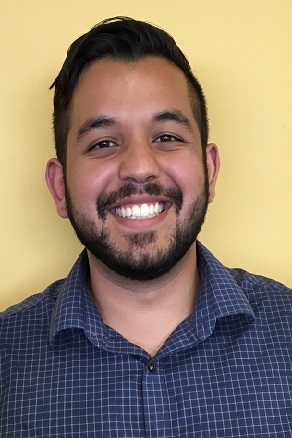
A second-year Wayne State University School of Medicine medical student is a finalist for the 2018 American Heart Association's 2018 CVRI Melvin Judkins Young Investigator Award.
Farhan Chaudhry will present his study, "Nuclear Molecular Imaging of Apoptosis in Heart Transplant Rejection" at the AHA's "Scientific Sessions 2018" in Chicago in November.
Chaudhry, originally from New York, plans to become a cardiologist or cardiothoracic surgeon. Now in his second year of medical studies, he will begin work on his doctoral degree next year. He will conduct his doctoral studies in the Department of Physiology under the advisement of Phillip Levy, M.D., M.P.H., the Edward S. Thomas Endowed Professor of Emergency Medicine and assistant vice president of Translational Science and Clinical Research Innovation for WSU.
"Less than a year ago I lost my father unexpectedly. He was a world-renowned cardiologist and was very well known for his work in echocardiography," Chaudhry said. "He was my best friend and was always there when I needed him. I dedicate this honor to my late father, who unfortunately is no longer with us, but will forever be my main motivator throughout my career and my life. I am very excited for this chance to win this incredibly prestigious award in cardiovascular imaging, and I am extremely excited to continue working in cardiovascular research here at Wayne State with Dr. Levy."
Chaudhry used a novel nuclear imaging agent called technetium-99m duramycin to detect cell death in mice that had undergone heart transplantation. The mice develop an immune response against the transplanted heart and start to reject the transplant, causing cellular death. The rejection - via the imaging agent -- could be detected through single photon computed tomography.
"Heart transplant rejection is the most significant concern after heart transplantation," he explained. "However, the only modalities we have in the clinic currently are invasive biopsy procedures that have risk of complications and the interpretation of the biopsy is prone to bias. Our novel noninvasive imaging modality may prove to be a useful tool in monitoring rejection in heart transplant patients."
Additionally, technetium-99m duramycin has demonstrated that it can detect cell death in atherosclerosis. This finding resulted in Chaudhry winning the 2016 Best Abstract Award from the American College of Nuclear Medicine and the Society of Nuclear Molecular Imaging.
"I would like to recognize Dr. Levy for his guidance in research during my time at Wayne State," said Chaudhry, who received his bachelor's degree in human physiology from Boston University and a master's degree in biomedical sciences from Icahn School of Medicine Graduate School at Mount Sinai, in New York City. "He is a brilliant researcher and has been a great mentor for me so far."
Chaudhry is the first author of a paper published this year in the Journal of the American College of Cardiology: Cardiovascular Imaging edition. That paper demonstrated that the imaging agent can detect cell death after myocardial infarction.